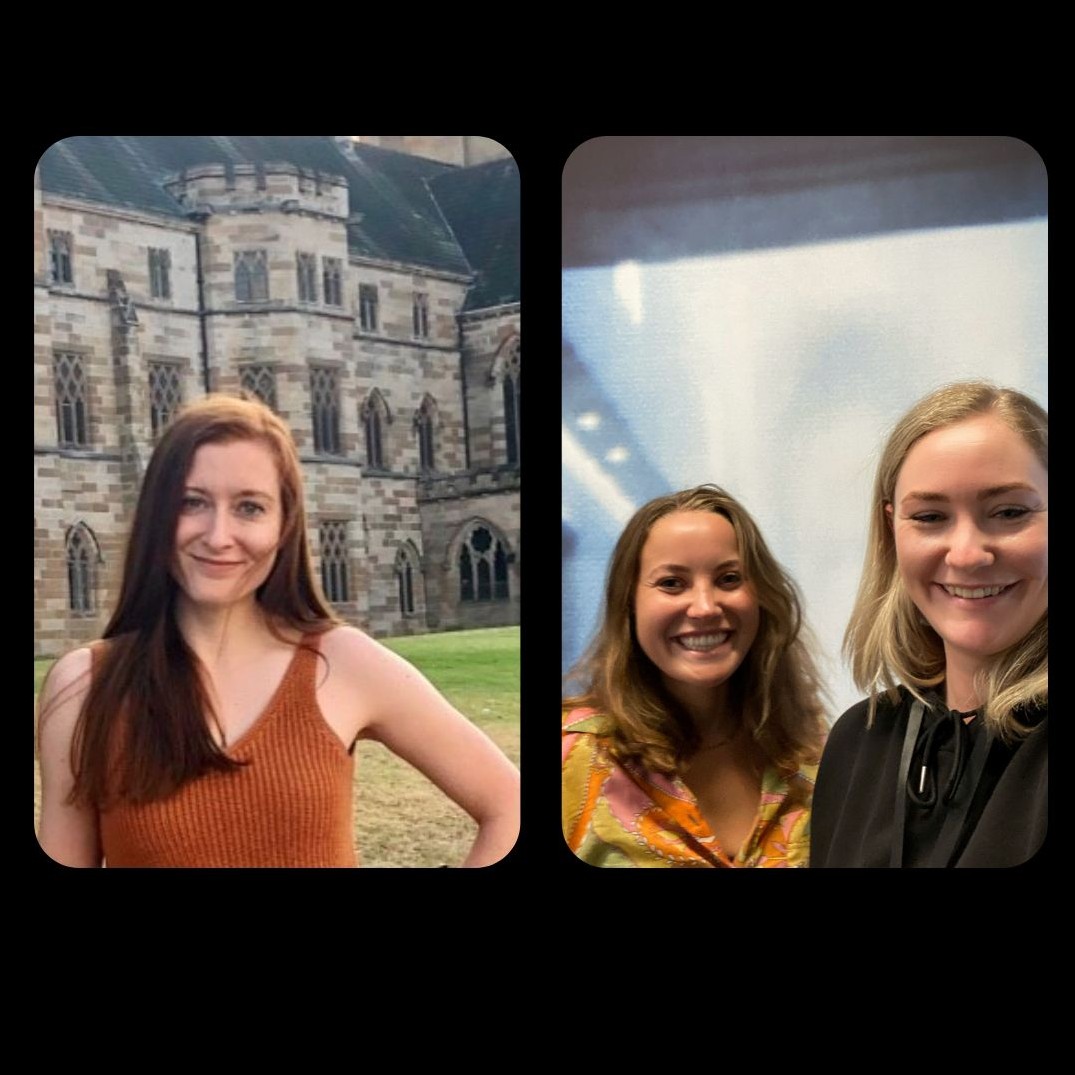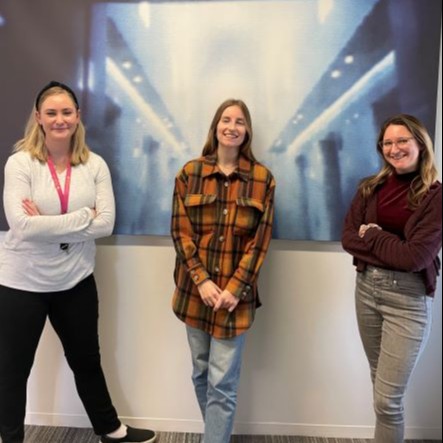Discover Tech Diplomacy
Tech Diplomacy

Tech Diplomacy
Author: Royal Norwegian Consulate General in San Francisco
Subscribed: 2Played: 9Subscribe
Share
© Copyright 2021 All rights reserved.
Description
Welcome to this podcast on tech diplomacy, brought to you directly from the world’s tech hub, San Francisco. In this podcast series, we shed light on important interfaces between diplomacy/foreign affairs and technology, with the help of experts from academia, technology, public and private sector.
This is a partnership project between the Norwegian Consulate General and Open Austria in San Francisco.
This is a partnership project between the Norwegian Consulate General and Open Austria in San Francisco.
13 Episodes
Reverse
How does a company like Meta work to protect the public from misinformation? How does the technology industry work, and how can the industry work to safeguard democracy and ensure free and fair elections in a digital world?
Together with Naomi Shiffman, we answer this and shed light on how the Meta Oversight Board answers some of the most challenging questions around freedom of expression online: what to take down and what to leave up.
Naomi Shiffman is the Head of Data and Implementation for the Meta Oversight Board. She previously built the academic and research program CrowdTangle, a Meta product. Naomi is also a non-resident fellow at the Atlantic Council's DFRLab and a founding fellow at the Integrity Institute. She holds a Master of Public Policy from the University of California, Berkeley.
What are the human rights implications of technology? What is the human rights perspective on elections and generative AI? How can social media, digital literacy, and critical thinking be included in the school curriculum? What is the importance of the technology industry to take human rights considerations into account? How can human rights be a powerful transformative force for the better of the world and how can we close the digital divide and use technology to combat hunger and ensure education is innovated around the world?
With Volker Türk, the UN High Commissioner for Human Rights, we answer these questions and discuss the human rights lens on the new and emerging technologies and what role states and technology companies have in safeguarding democracy and human rights.
Volker Türk has devoted his long and distinguished career to advancing universal human rights, notably the international protection of some of the world`s most vulnerable people, refugees, and stateless persons. Before Mr. Türk was appointed UN High Commissioner for Human Rights, he was the Under Secretary General for Policy in the Executive Office of the United Nations Secretary-General and, prior to this, Assistant Secretary-General for Strategic Coordination in the Executive Office of the Secretary-General and several key positions at UNCHR headquarters. Volker Türk holds a doctorate in international law from the University of Vienna and a Master of Laws degree from the University of Linz, Austria.
What has Telenor Group done to contribute to the green and digital transition? How does a Norwegian state-owned telecom company empower the societies in their markets? What are the most significant opportunities for responsible AI? What is the industry's responsibility, and what is needed from the government to meet concerns on the risks and downsides of AI? What is the largest tech companies' role in shaping the future?
With Sigve Brekke, President & CEO of Telenor Group, we answer these questions and discuss what it means for a telecom company to have ethics and sustainability as an integrated part of the business model. Before Sigve Brekke was appointed President and CEO of Telenor Group, he was the Executive Vice President and Head of Telenor Asia Region. He also has experience from political life as State Secretary (Deputy Minister) of Defence in Norway.
How will AI affect our daily lives? What is an AI agent? How can the tech industry and governments ensure that safety considerations are considered in the development of AI? Do we need an AI Agency? How can breakthrough technology contribute to the UN goal on climate and environment? How is Google working to solve the global environmental challenges?
Together with Gopi Kallayil, Chief Business Strategist for AI at Google, we answer these questions and discuss AI & how technology can have a positive impact on the climate and environment and our daily lives. Gopi Kallayil is Chief Business Strategist for AI at Google. He works with Google’s largest customers and the sales team to help transform the customers business through AI powered marketing and the consumer experience. Before joining Google, Gopi was on the management team of two Silicon Valley venture-funded startups and was a consultant with McKinsey & Co. The views, thoughts, and opinions expressed in the podcast are the speaker’s own.
Gopi holds a guest faculty position at the Stanford University Graduate School of Business. He has spoken at TEDx, The World Happiness Summit, and Wisdom 2.0. He is the author of two books, “The Happy Human” and “The Internet to the Inner-net”. Gopi holds MBAs from the Indian Institute of Management and the Wharton School of University of Pennsylvania.
What did Microsoft do when the war broke out in Ukraine? How is Microsoft working on AI development and taking safety and ethical considerations into account? How can governments keep pace with the rapid development of AI? Why is capacity building in countries that get access to technology important? How does Microsoft work on cyber security? How is Microsoft ramping up for the US elections in 2024?
Together with Amy Larsen, Director of Strategy and Business Management of Microsoft’s Democracy Forward team, we answer these questions and discuss Big Tech companies impact on the intersection of democracy, fundamental rights and technology.
Amy Larsen serves as Director of Strategy and Business Management of Microsoft’s Democracy Forward team, where she leads the team’s strategy on cybersecurity, information integrity, election integrity, journalism, and corporate civic engagement. She also leads the team’s international strategy and supports the company’s Ukraine Task Force. Previously, Amy practiced law at Davis Polk and then within Morrison & Foerster’s National Security and Global Risk, Crisis Management groups. Amy previously interned in the Obama White House on then-Vice President Biden’s team, held a human rights fellowship in Congress, and served at the State Department’s U.S. Mission to the EU. Amy holds a B.A. in Political Science from Yale, a J.D. from NYU Law, and an M.P.A. from the Harvard Kennedy School of Government. She was awarded a Fulbright to South Korea and is an Aspen Security Scholar and member of the Truman National Security Project.
How do Big Tech companies influence geopolitics, providing governmental services and invest in future leaning infrastructure? How can we protect our next generations and children from the downsides of technology? Why do we need to slow down the development of AI? How has Tech Diplomacy emerged in the Bay area over the last 7 years? Why do nations need Tech ambassadors?
Together with Alexis Wichowski, author and professor, we answer these questions and discuss how big tech companies have become geopolitical actors and how we can ensure safety AI.
Alexis Wichowski’s work and writing focuses on technology, government, and power, with almost two decades in public service and a decade teaching in applied technologies at Columbia University. Alexis has served in US State Department and US Mission to the United Nations, and as Deputy Chief Technology Officer in the City of New York.
She’s currently writing a follow-up book to The Information Trade, which was published in 2020 (HarperCollins). Prior work also includes disaster relief, literary translation, media impact research, indexing, web coding, theater production, foreign sitcoms, and pretzel vending. Wichowski holds a PhD in Information Science from SUNY Albany and a BA in Chinese from Connecticut College.
Will the calls to pause the development of AI solve the challenges? Is more global governance and regulations the answer to the rapid development of generative AI? What are the implications of the Silicon Valley Bank collapse?
Together with Gerard de Graaf, EU's Senior Envoy for Digital to the U.S, we discuss these matters and the importance of the role of the governments to protect our society from the downsides of technology. In this second episode we discuss the latest news from Silicon Valley.
Gerard de Graaf is EU's Senior Envoy for Digital to the U.S. His last job, before coming over to represent the European Union on the US West Coast, was in DG CNECT where he led the work on platform regulation. Gerard de Graaf has also been Trade Counsellor at the EU Delegation to the US in Washington DC.
How is Big Tech companies impacted by EU's new Digital Package? What is the Digital Services Act and Digital Markets Act in a nutshell? How is EU working on Tech Diplomacy in Silicon Valley?
Together with Gerard de Graaf, EU's Senior Envoy for Digital to the U.S, we answer these questions and discuss the impact of the new Digital Package from EU and what will change for the Big Tech companies. In this first episode, we discuss how the tech industry is influencing our society and geopolitics and how EU and other countries are working on Tech Diplomacy in Silicon Valley.
Gerard de Graaf is EU's Senior Envoy for Digital to the U.S. His last job, before coming over to represent the European Union on the US West Coast, was in DG CNECT where he led the work on platform regulation. Gerard de Graaf has also been Trade Counsellor at the EU Delegation to the US in Washington DC.
In this episode we are joined by Patricia Gruver-Barr, a Tech Diplomacy Fellow with the Pacific Council on International Policy to discuss her new report "Tech Companies as Power Brokers in the Digital Age". She leads the science diplomacy fellowship program for the National Science Policy Network, and has previously worked as a Science Attaché for the Quebec and UK governments. She has also served as the co-chair of the Science & Technology Diplomatic Circle of Boston for four years.
For more information please read the report:
The Pacific Council on International Policy: Tech Companies as Brokers in the Digital Age
In this episode, we explore the field of Cyber Diplomacy. How do we define it, and why is it important? Joined by cyber experts Anna-Maria Osula, Phd., digital governance fellow at Stanford University and Senior Researcher at Tallinn University of Technology, and Norwegian Deputy Consul General of Norway in San Francisco, Helge Marstrander, with an extensive cyber security background from the private sector. Join us to learn more about the work happening on a international, regional, and local level in the field of Cyber Diplomacy. The episode is hosted by Emma Blattmann, Senior Advisor for Technology, Innovation, and Science at the Norwegian Consulate in San Francisco.
Our guest in this episode is VP of Technology Exploration at DnB, Ada Skarsholt Larsen. In this episode we explore how traditional banking systems are adapting to the fast moving world of technology. Listen in to hear how they integrate new technology, work with partners and government, and more specifically what they think about blockchain and cryptocurrency. Please join us for this 3rd episode of the Tech Diplomacy podcast!
In this episode you will hear from Martin Rauchbauer, Austria's Tech Ambassador in Silicon Valley, Co-Director of Open Austria and Austrian Consul in San Francisco. Martin was sent to San Francisco in 2016 in order to open and establish his country’s first innovation outpost in Silicon Valley. Martin’s office helps Austrian entrepreneurs, scientists, researchers, and creative minds to connect with the biggest innovation ecosystem in the world.
Please listen in to better understand what tech diplomacy is, how fast the concept is growing, and why it matters for foreign affairs.
Hosted by Emma Blattmann, Tech Diplomacy Advisor at the Norwegian Consulate General in San Francisco and Kylee Mebust, Deputy Director - Open Austria.
In this episode you will hear from Anni Hellman, EU Fellow at UC Berkeley and deputy Head of Unit at the European Commission. She is a mathematician and a qualified actuary and a Fellow of the Actuarial Association of Finland and holds degrees in mathematics, actuarial sciences and computer sciences.
Please listen in to get Anni's view on artificial intelligence in general and algorithms in particular as well as the disinformation challenge from a mathematical perspective.
Hosted by Gry Rabe Henriksen, Norwegian Consul General and Kylee Mebust, Deputy Director - Open Austria.
















